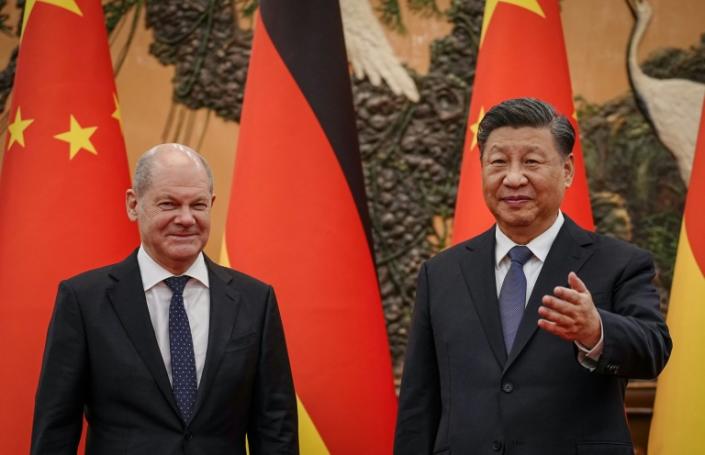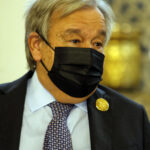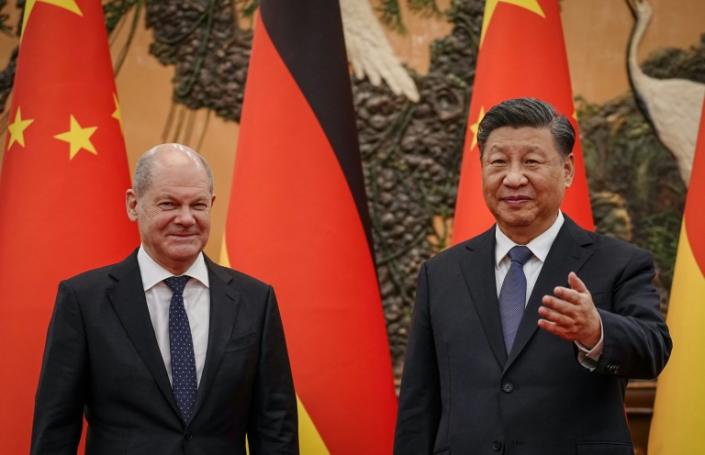
Xi Jinping welcomed German Chancellor Olaf Scholz to Beijing Friday, with both sides seeking to deepen economic cooperation on a trip that has prompted criticism over Berlin’s growing reliance on an increasingly authoritarian China.
Scholz is the first G7 leader to visit China since the start of the coronavirus pandemic, which has seen the world’s number two economy close its borders and Xi largely eschew in-person diplomacy.
The German leader’s trip has sparked controversy at home, coming so soon after Xi strengthened his hold on power and as tensions run high between the West and Beijing on issues ranging from Taiwan to alleged human rights abuses.
Received by a smiling Xi at Beijing’s Great Hall of the People shortly after arriving, Scholz said he hoped to “further develop” economic cooperation — while alluding to areas of disagreement.
“It is good that we are able to have an exchange here about all questions, including those questions where we have different perspectives — that’s what an exchange is for,” Scholz said.
“We also want to talk about how we can further develop our economic cooperation on other topics: climate change, food security, indebted countries.”
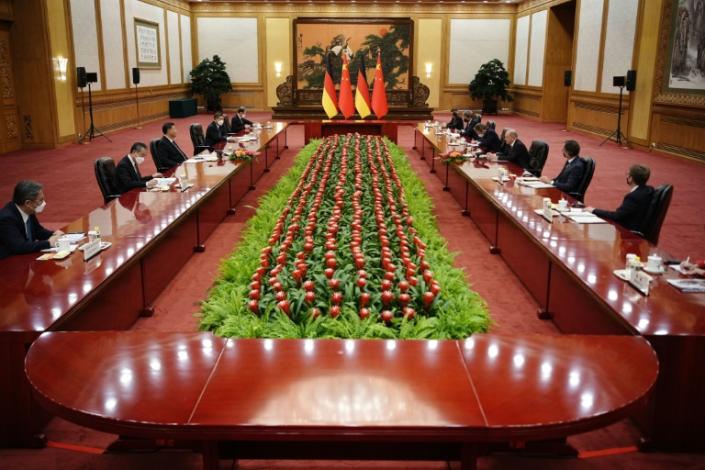

“Noting the complex and fluid international landscape, Xi underscored the need for China and Germany, two major countries with great influence, to work together in times of change and instability and contribute more to global peace and development,” according to Beijing’s Xinhua News Agency.
Scholz will also meet Premier Li Keqiang on the one-day trip, on which he is being accompanied by top business executives.
The delegation of more than 60 people was met on the tarmac at Beijing airport by a military guard — as well as health workers in white hazmat suits who conducted mandatory PCR tests in buses converted into mobile laboratories.
Scholz’s PCR test was taken in his plane by a German doctor he brought with him and supervised by Chinese health officials, according to the German government.
– ‘Keep doing business’ –
China’s economic importance is seen by some in Berlin as more crucial than ever, as Germany hurtles towards a recession battling an energy crisis triggered by the Ukraine war.
China is a major market for German goods, from machinery to vehicles made by the likes of Volkswagen, BMW and Mercedes-Benz.
But German industry’s heavy dependence on China is facing fresh scrutiny after the over-reliance on Russian energy imports left it exposed when Moscow turned off the taps.
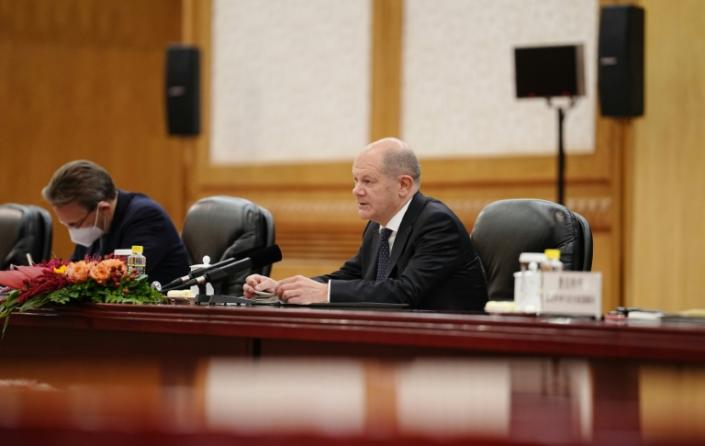

Scholz’s approach is still underpinned by the idea that “we want to keep doing business with China, no matter what that means for the dependence of our economy, and for our ability to act”, opposition lawmaker Norbert Roettgen told the Rheinische Post newspaper.
Concern about China has also come from within Germany’s ruling coalition, with Foreign Minister Annalena Baerbock saying mistakes made in the past with Russia must not be repeated.
Last month a row erupted about whether to allow Chinese shipping giant Cosco to buy a stake in a Hamburg port terminal.
Scholz ultimately defied calls from six ministries to veto the sale over security concerns, instead permitting the company to acquire a reduced stake.
– ‘All the more important’ –
There are also concerns that the trip — coming on the heels of Xi securing a historic third term at a Communist Party Congress last month — may have unsettled the United States and the European Union.
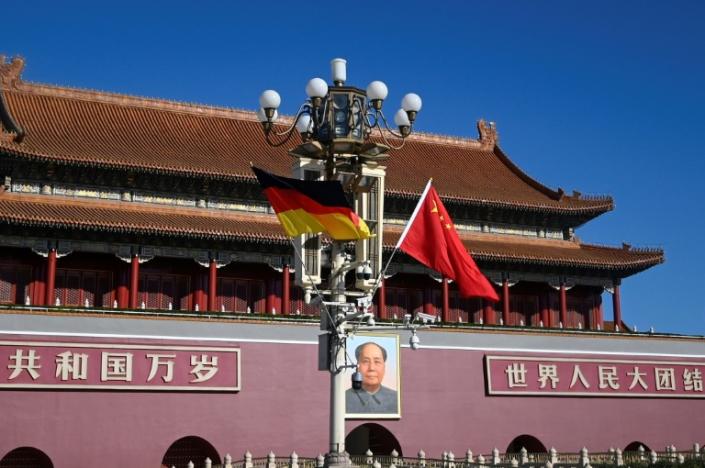

Berlin, however, says there have been consultations with key partners, while Scholz has insisted he is visiting China as a “European” as well as the leader of Germany.
He said direct talks with Chinese leaders were “all the more important” after the long hiatus caused by the pandemic.
In a newspaper article, he promised to raise thorny topics like respect for civil liberties and the rights of minorities in Xinjiang.
But Beijing has already warned that “the Chinese side is opposed to interference in our internal affairs, and smearing us under the guise of discussing human rights issues”, said foreign ministry spokesman Zhao Lijian.
pw-reb/oho/axn

